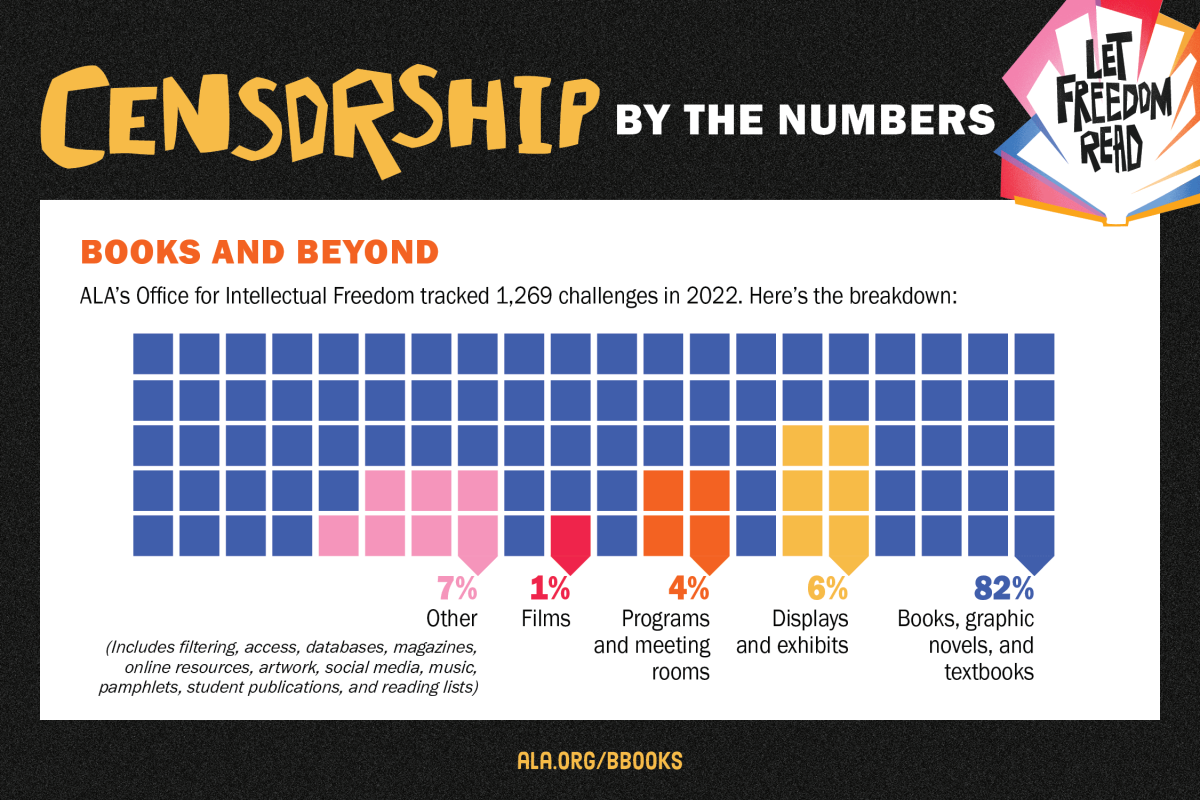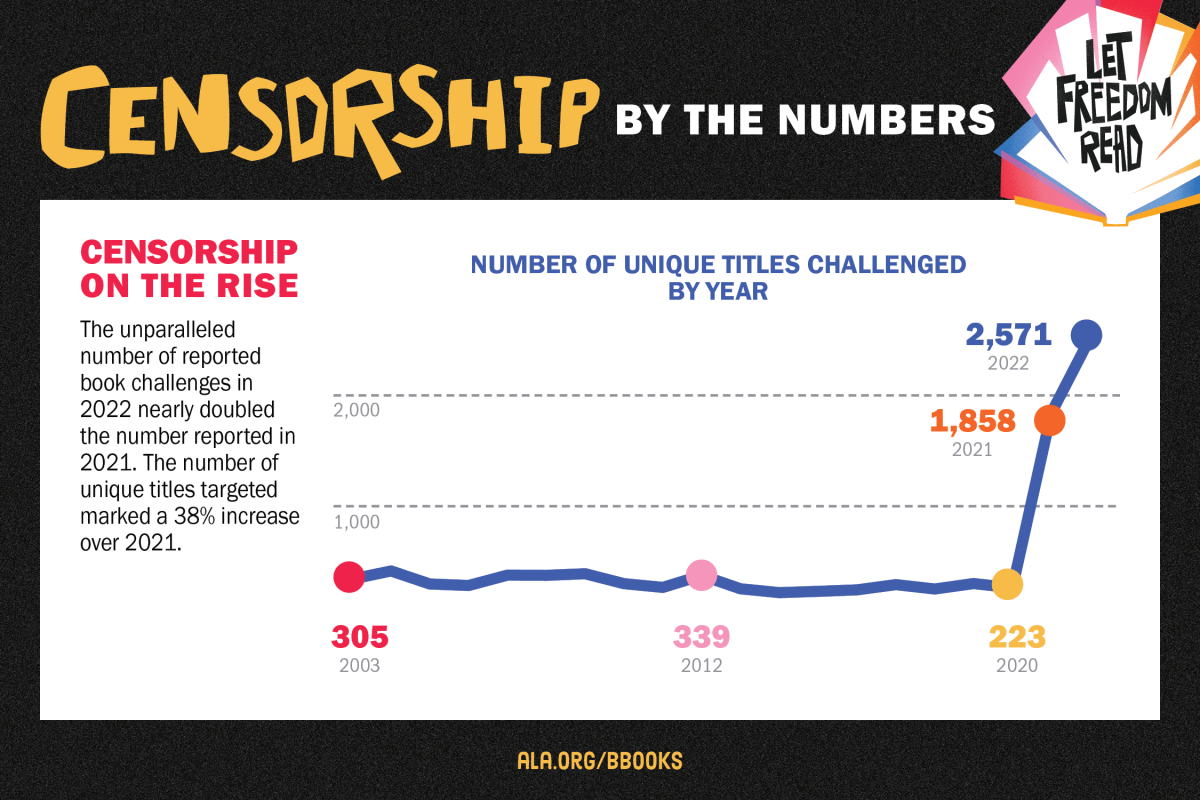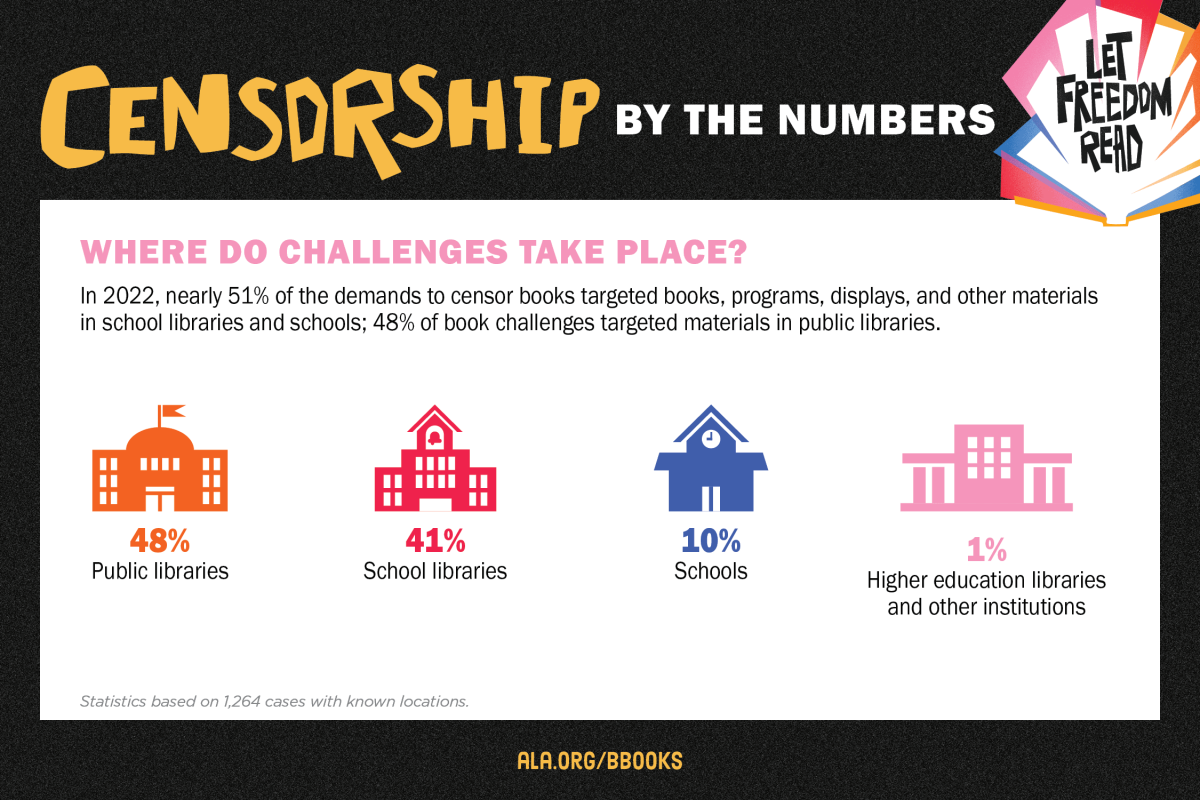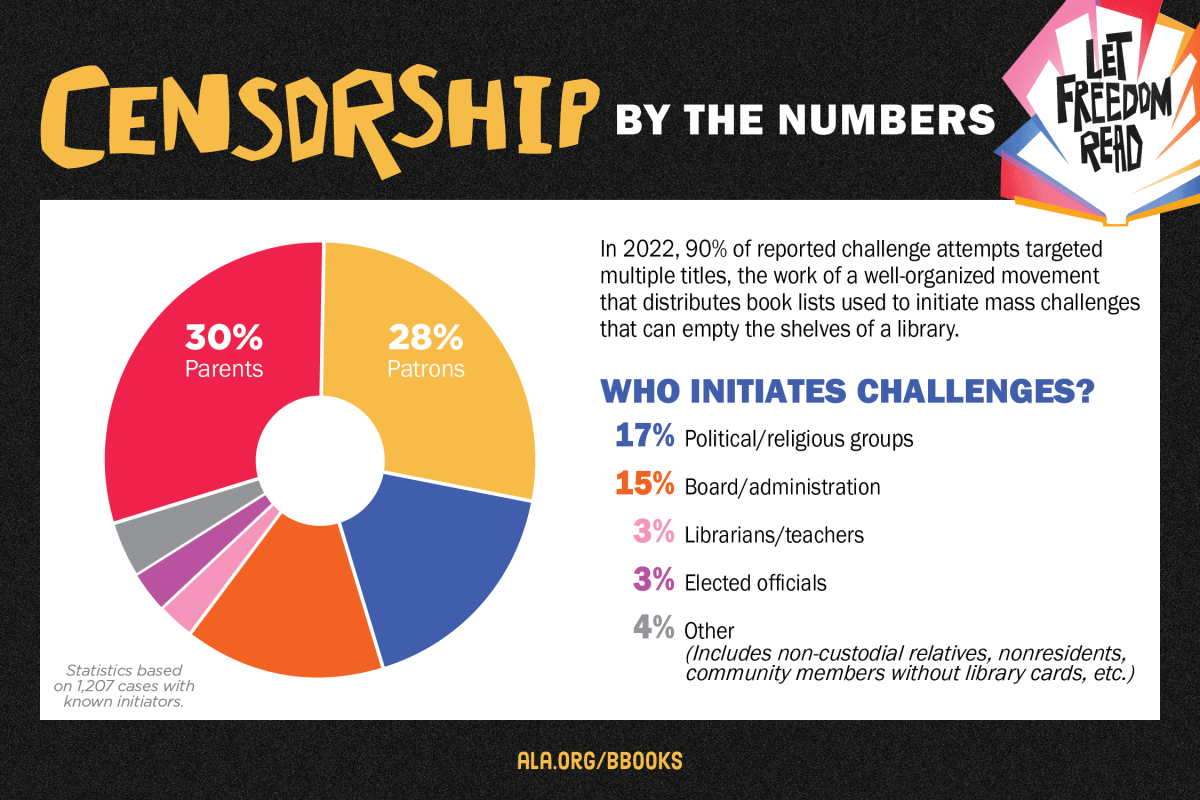University Libraries
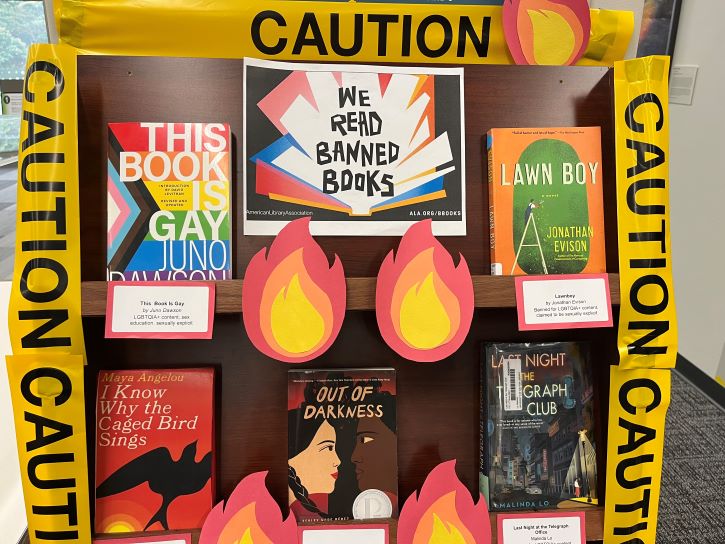
Let Freedom Read
By Diane Osman
For over 40 years, Banned Books Week has drawn national attention to the harms of censorship. This year, Banned Books Week is Oct. 1-7, and the theme is “Let Freedom Read.”
“‘Let Freedom Read’ captures what’s at stake for our democracy: that the safety of our right to speak and think freely is directly in proportion to our right to read,” said Lessa Kanani’opua Pelayo-Lozada, director of the American Library Association (ALA).
The ALA recorded 2,571 unique titles targeted for censorship in 2022 — the highest number since the organization began keeping track of censorship data in libraries more than 20 years ago. This number is up from 1,858 in 2021.
“This is a dangerous time for readers and the public servants who provide access to reading materials,” said Deborah Caldwell-Stone, director of the ALA’s Office for Intellectual Freedom. “Readers, particularly students, are losing access to critical information, and librarians and teachers are under attack for doing their jobs.”
The tone and methods of challenging books are changing, she added.
“What we’re seeing is not the result of an individual parent speaking to a librarian or a teacher about a particular book their child is reading,” she said in an interview in March. “We’re seeing a campaign by politically partisan groups to remove vast swaths of books that don’t meet their agenda, whether that’s a political or religious or moral agenda.”
Many of the challenged books are by or about LGBTQIA+ persons and people of color or address racial inequality. EveryLibrary, a political action committee for libraries, found 113 bills across the country in 2023 that it says would negatively impact libraries or decrease people’s freedom to read certain books.
2023 also marks the 70th anniversary of the ALA’s Freedom To Read statement. In 1953, a group of professors, directors, librarians, publishers and business people met to “discuss the current wave of censorship and attacks on books and libraries.” They crafted the Freedom to Read statement to define the responsibilities of publishers and librarians to protect Americans’ freedom to read. The first line of the document still rings clear: “The freedom to read is essential to our democracy.”
What We Can Do
- Read a Banned Book. Come to Roesch Library and check out our Banned Books display in the leisure reading section and pick out a banned book to read. Pick up a bookmark or a sticker while supplies last.
- Share this blog post or write about banned books on social media.
- Stay informed: If you hear about a local challenge, support your librarians and inform the ALA’s Office for Intellectual Freedom.
- Attend a Banned Books Week program or stream a banned books week webinar.
- Write a letter of support to the author of a favorite banned book.
- Write letters to your local government officials.
- Attend your community school and library meetings.
- Check out the Unite Against Book Bans Website, a campaign supported by the ALA to fight the banning of books.
- Find more resources on the American Library Association’s website.
American writer, professor and banned book author Ibram X. Kendi says, “To fight off the book bans is to fight for basic human freedoms.” Banning books prevents people from reading about different people, places and perspectives. By standing up for banned books, we are helping protect everyone’s right to hear suppressed voices. Let freedom read!
— Diane Osman is a member of the University Libraries diversity and inclusion team. Artwork courtesy of the American Library Association, www.ala.org.
Censorship by the Numbers